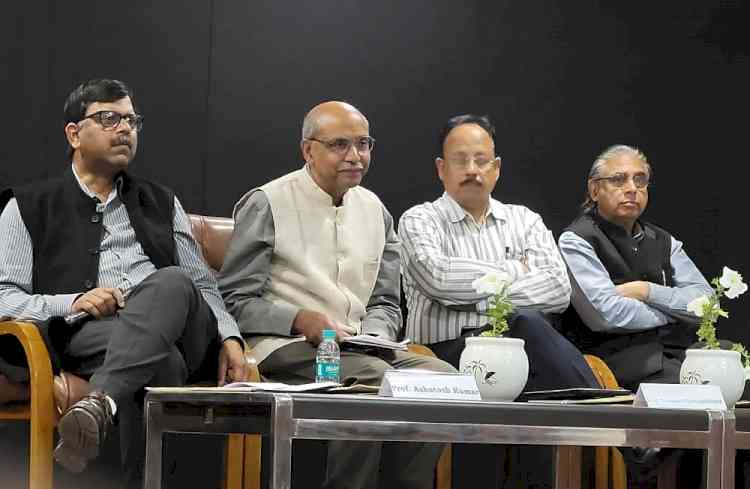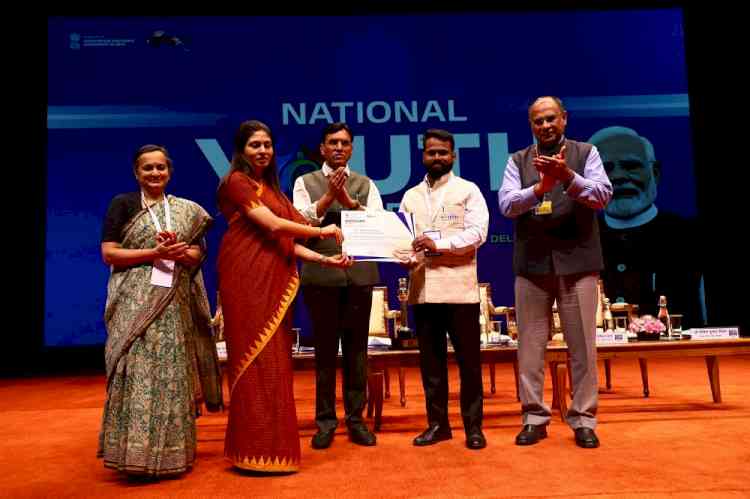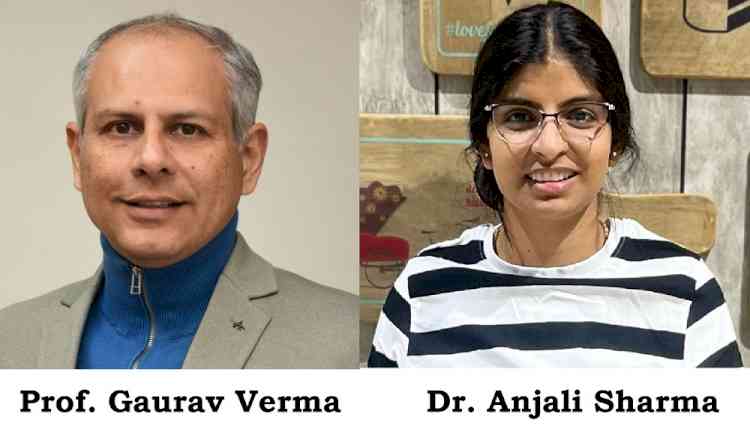Annual Shaheed Bhagat Singh Memorial lecture in Panjab University
Department of Political Science under the aegis of ongoing G20 events organized the annual Shaheed Bhagat Singh Memorial lecture in Panjab University.

Chandigarh, March 1, 2023: Department of Political Science under the aegis of ongoing G20 events organized the annual Shaheed Bhagat Singh Memorial lecture in Panjab University. Professor Saumen Chattopadhyay from Zakir Husain Centre for Educational Studies, JNU delivered a lecture on National Education Policy.
The lecture was chaired by Professor Ronki Ram and Professor Harsh Nayyar, Director Research, Panjab University was the guest of honour. Professor Chattopadhyay highlighted the key features of the national education policy with focus on the higher education sector. The policy aims at instituting a globally competitive education system in India by 2040, which provides equitable access to the highest-quality education for all learners regardless of their social or economic background. For ensuring access and equity, medium of instruction in higher education is proposed to be bilingual, both in Indian languages and English. The policy also aims at equipping individuals with values. Referring to the increasing role of the market economy, the policy also asks the institutions of higher learning to enable students to develop market appropriate skills at each stage of learning. There has to be an integrated higher education system, combining professional and vocational education. The university system is to provide opportunities for internship with local industry, business, crafts persons, among others. Research internships with faculty and researchers also is envisaged in the plan document. To ensure flexibility to the students, not only the institutions of higher education must turn into multidisciplinary universities but the subject courses should be multidisciplinary. An iimaginative and flexible curricular structure is envisaged under the new education policy, having creative combinations of disciplines for study. Such a curriculum would offer multiple entry and exit points to the students who would be earning their credits as per their plan. An Academic Bank of Credit (ABC) is to be established which would digitally store the academic credits earned from various recognized HEIs so that the degrees from an HEI can be awarded taking into account credits earned. Another important feature of the policy is to aim at developing an innovative curriculum which shall include credit-based courses and projects in the areas of community engagement and service, environmental education, and value-based education. The policy aims at three distinct clusters of higher education institutions namely research universities, teaching-intensive universities and autonomous degree granting colleges.
While outlining the policy, Professor Chattopadhyay emphasised on the factor of collegiality among the students, teaching faculty and non-teaching staff to contribute to the wellbeing of the institutions. Academic leadership is another vital factor to ensure the institutions attain commanding heights. The budgetary allocations to the public institutions by the government is an important factor as private institutions cannot fulfil the role in such a vast country. The setting up of the National Research Foundation is going to help. Also the institutions of eminence both in public and private education sectors are being funded by the government in a big way to make them compete with the best educational institutions in the world.
The lecture was very well attended by the faculty of social sciences, education and the students and researchers.


 City Air News
City Air News 








